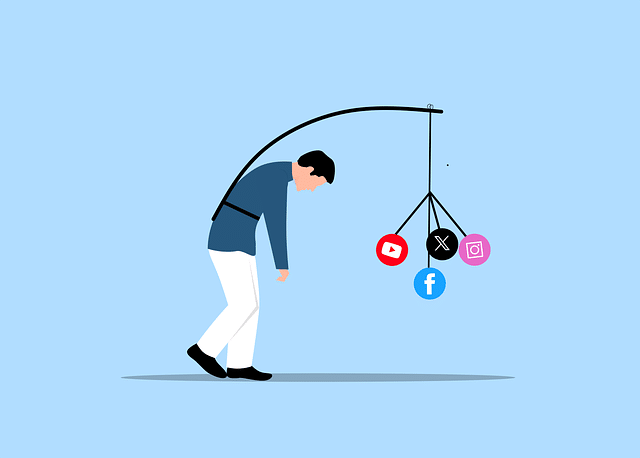In today’s fast-paced digital world, staying focused has become increasingly challenging. The constant bombardment of notifications, emails, social media updates, and digital distractions is taking a toll on our ability to concentrate. But what’s the real cost of these distractions? How are they impacting our productivity, mental health, and overall well-being? In this article, I’ll explore the hidden dangers of digital distractions and offer insights on how to regain control of your focus in the digital age.

As someone deeply invested in cognitive performance and brain training, I’ve seen first hand the detrimental effects that digital distractions can have on our minds. Through this article, I hope to provide you with valuable insights and practical strategies to help you navigate this complex digital landscape and come out on top.
The Digital Distraction Epidemic
Digital distractions are everywhere. Whether it’s the constant ping of a smartphone notification, the allure of social media, or the never-ending stream of emails, our attention is constantly being pulled in multiple directions. According to a study by RescueTime, the average person checks their phone 58 times a day, and many of these interactions are prompted by notifications rather than deliberate actions. This constant interruption fragments our focus and makes it difficult to concentrate on important tasks.
In a world where information is just a click away, it’s easy to get lost in the digital noise. But the real cost of these distractions goes beyond mere inconvenience. The lack of focus and concentration resulting from digital distractions can have serious consequences for our productivity, mental health, and cognitive abilities.

The Impact on Productivity
One of the most significant effects of digital distractions is their impact on productivity. Research has shown that it takes an average of 23 minutes to regain focus after being interrupted. This means that every time you check your phone or respond to an email, you’re losing valuable time that could be spent on more meaningful work.
Moreover, multitasking, which is often encouraged in the digital age, has been proven to be counterproductive. Studies have shown that multitasking reduces productivity by as much as 40% and can even lower your IQ. The human brain is simply not designed to handle multiple tasks at once, and attempting to do so leads to cognitive overload and decreased efficiency.
For professionals, the consequences of digital distractions are particularly severe. In a competitive environment where time is money, the inability to focus can lead to missed deadlines, poor decision-making, and decreased overall performance. To stay ahead in your career, it’s essential to develop strategies to minimize distractions and enhance your ability to concentrate.

The Psychological Toll
The constant barrage of digital distractions doesn’t just affect our productivity—it also takes a toll on our mental health. The need to constantly check our devices can lead to anxiety, stress, and even depression. This phenomenon, known as “techno-stress,” is becoming increasingly common as we become more dependent on technology.
Additionally, the fear of missing out (FOMO) can exacerbate feelings of anxiety and inadequacy. Social media platforms, in particular, are designed to keep us engaged by constantly feeding us new content, making it difficult to disconnect and focus on the present moment. The result is a never-ending cycle of distraction, anxiety, and mental exhaustion.
The Effect on Cognitive Abilities
Digital distractions also have a significant impact on our cognitive abilities. The constant switching between tasks can lead to “cognitive residue,” where your brain continues to think about the previous task even as you try to focus on the next one. This mental clutter makes it difficult to concentrate, think critically, and retain information.
Moreover, the reliance on digital devices for information retrieval has led to a decline in memory and problem-solving skills. Instead of engaging in deep, focused thinking, many of us rely on quick Google searches to find answers. While this might seem convenient, it ultimately weakens our cognitive abilities and hinders our ability to think independently.
As a world champion in speed reading and mind mapping, I can attest to the importance of training the brain to focus and process information efficiently. Speed reading, in particular, is a skill that can help you navigate the overwhelming amount of information in the digital age, allowing you to stay ahead in your career and personal life.

Strategies to Combat Digital Distractions
While digital distractions are pervasive, there are several strategies you can implement to regain control of your focus and concentration:
- Set Clear Boundaries: Establish specific times during the day when you will check your emails, social media, and other digital platforms. Stick to these times and avoid checking your devices outside of these designated periods.
- Use Technology Wisely: Take advantage of apps and tools designed to minimize distractions. For example, apps like Focus@Will and Freedom can help you stay focused by blocking distracting websites and providing background music that enhances concentration.
- Practice Mindfulness: Mindfulness meditation is a powerful tool for improving focus and reducing the impact of digital distractions. By training your mind to stay present, you can develop greater control over your attention and resist the urge to constantly check your devices.
- Prioritize Deep Work: Deep work refers to the ability to focus on cognitively demanding tasks without distractions. Set aside dedicated blocks of time for deep work, during which you eliminate all distractions and focus solely on the task at hand.
- Take Regular Breaks: The Pomodoro Technique, which involves working for 25 minutes followed by a 5-minute break, can help you maintain focus and prevent burnout. Regular breaks also give your brain a chance to recharge and process information more effectively.
The Role of Speed Reading in Overcoming Digital Distractions
One of the most effective ways to combat digital distractions is by developing your speed reading skills. Speed reading allows you to process information more quickly, reducing the time you spend reading and increasing the amount of content you can consume. This is particularly valuable in the digital age, where the sheer volume of information can be overwhelming.

Speed reading also enhances your ability to focus and retain information. By training your brain to read faster, you can improve your concentration and reduce the cognitive load associated with processing large amounts of information. This, in turn, helps you stay ahead in your career and personal life, giving you a competitive edge in a world where information is power.
In my “Intelligent Reading Masterclass,” I teach unique techniques for improving reading speed and training the brain to process information more efficiently. These skills are essential for anyone looking to thrive in the digital age and overcome the challenges posed by digital distractions.
The Long-Term Consequences of Digital Distractions
The long-term consequences of digital distractions are not to be taken lightly. If left unchecked, the constant interruptions and lack of focus can lead to burnout, decreased cognitive function, and a decline in overall well-being. Below are the risk of potential disorders
| Disorder | Description | Symptoms | Impact |
| Attention Deficit Disorder (ADD) | Difficulty maintaining attention and staying on task. | Inattention, forgetfulness, distractibility, difficulty focusing. | Affects academic performance, work productivity, and personal relationships. |
| Attention Deficit Hyperactivity Disorder (ADHD) | Includes hyperactivity and impulsivity, common in children but can persist into adulthood. | Inattention, restlessness, impulsive behavior, difficulty sitting still. | Challenges in school, work, and social settings. |
| Cognitive Impairment | Trouble with cognitive functions such as memory and concentration. | Difficulty focusing, memory lapses, confusion, slower thought processes. | Affects daily life, work performance, often related to aging or neurological conditions. |
| Obsessive-Compulsive Disorder (OCD) | Anxiety disorder with recurring thoughts (obsessions) and repetitive behaviors (compulsions). | Recurrent distressing thoughts, compulsive actions, difficulty focusing on other tasks. | Interferes with daily functioning and can be debilitating. |
| Depression | Mood disorder causing persistent sadness and loss of interest. | Persistent sadness, lack of energy, difficulty concentrating, indecisiveness. | Impairs work performance, strains relationships, decreases quality of life. |
| Anxiety Disorders | Excessive fear or worry that interferes with daily activities. | Constant worry, restlessness, difficulty concentrating, indecisiveness. | Leads to focus problems, sleep disturbances, and decreased productivity. |
| Traumatic Brain Injury (TBI) | Sudden trauma causing brain damage, affecting cognitive functions like focus and attention. | Memory loss, difficulty concentrating, confusion, mood or behavior changes. | Results in long-term cognitive deficits, challenges with daily tasks. |
| Chronic Fatigue Syndrome (CFS) | Complex disorder with extreme fatigue and problems with focus and memory. | Severe fatigue, brain fog, difficulty concentrating, impaired memory. | Severely affects daily activities, work performance. |
| Sleep Disorders (e.g., Insomnia, Sleep Apnea) | Disruption of normal sleep patterns leading to insufficient rest and impaired focus. | Difficulty falling asleep, staying asleep, excessive daytime sleepiness, lack of focus. | Memory problems, reduced concentration, increased risk of accidents. |
| Autism Spectrum Disorder (ASD) | Developmental disorder affecting communication and behavior, includes focus challenges. | Difficulty with social interaction, repetitive behaviors, challenges focusing on specific tasks. | Affects learning, work, and social relationships. |
In a world where technology is becoming increasingly integrated into our daily lives, it’s more important than ever to develop strategies for managing digital distractions and maintaining focus.
By taking proactive steps to minimize distractions and enhance your cognitive abilities, you can protect your mental health, improve your productivity, and achieve greater success in all areas of your life.
Conclusion: Take Control of Your Focus in the Digital Age
The digital age presents both opportunities and challenges. While technology has made it easier than ever to access information and stay connected, it has also introduced a new set of challenges when it comes to focus and concentration. Digital distractions are a real and pressing issue that can have serious consequences for your productivity, mental health, and cognitive abilities.
However, by implementing the strategies outlined in this article, you can take control of your focus and minimize the impact of digital distractions. Whether it’s setting clear boundaries, practicing mindfulness, or developing your speed reading skills, there are numerous ways to protect your mind from the constant barrage of digital noise.
As a world champion in speed reading and mind mapping, I’ve seen the transformative power of brain training firsthand. My “Intelligent Reading Masterclass” offers a unique opportunity to learn techniques that will help you stay focused, process information more efficiently, and thrive in the digital age. I invite you to join me on this journey and discover the true potential of your mind.
About the author : Rajneesh Barapatre
Share This Story.
Join our mailing list today
Insider offers & flash sales in your inbox every week.
Curabitur non nulla sit amet nisl tempus convallis quis ac lectus dolor sit amet, consectetur adipiscing elit sed porttitor lectus.

